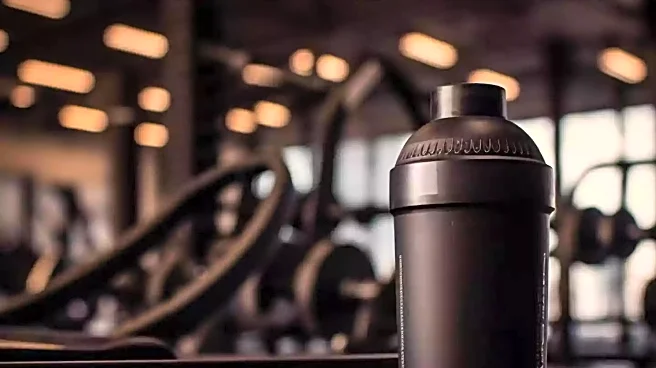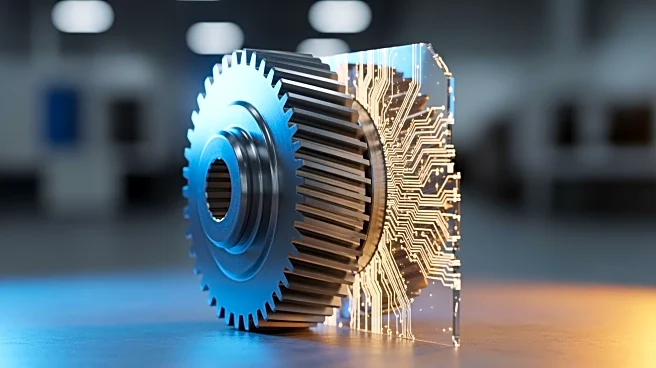What's Happening?
Creatine, traditionally used by bodybuilders and athletes, is gaining popularity among women for its potential benefits in fitness and brain health. Registered dietitian Gretchen Zimmermann notes that women are increasingly interested in creatine as they lift heavier weights, debunking the myth that heavy lifting leads to bulkiness. Creatine is a compound produced in the body and found in animal-based foods, aiding in muscle contractions and energy regeneration. It is particularly beneficial for short, intense activities like sprinting and weightlifting, and may help preserve muscle strength and lean body mass, especially in older women. Additionally, creatine may support brain health by reducing mental fatigue and improving memory, with potential benefits for women experiencing hormonal changes during menopause.
Why It's Important?
The growing interest in creatine among women highlights a shift in fitness and wellness trends, emphasizing strength training and cognitive health. As women age, maintaining muscle mass becomes crucial for overall health, and creatine supplements can aid in this process. The supplement's potential to enhance brain function and mood is particularly relevant for women undergoing hormonal changes, offering a natural alternative to support mental well-being. This trend may influence the supplement industry to cater more to female consumers, expanding product offerings and marketing strategies.
What's Next?
As creatine continues to gain popularity, further research may explore its long-term effects on women's health, particularly in relation to hormonal changes and aging. The supplement industry might see an increase in products specifically targeting women, with potential regulatory considerations for safety and efficacy. Fitness and wellness communities may further embrace creatine as a staple for both physical and mental health, encouraging broader adoption among diverse demographics.
Beyond the Headlines
The rise of creatine among women reflects broader societal shifts towards gender equality in fitness and wellness. As women challenge traditional norms and embrace strength training, creatine's popularity may contribute to changing perceptions of female fitness and empowerment. This development also underscores the importance of personalized health solutions, as women seek supplements that address their unique physiological needs.










